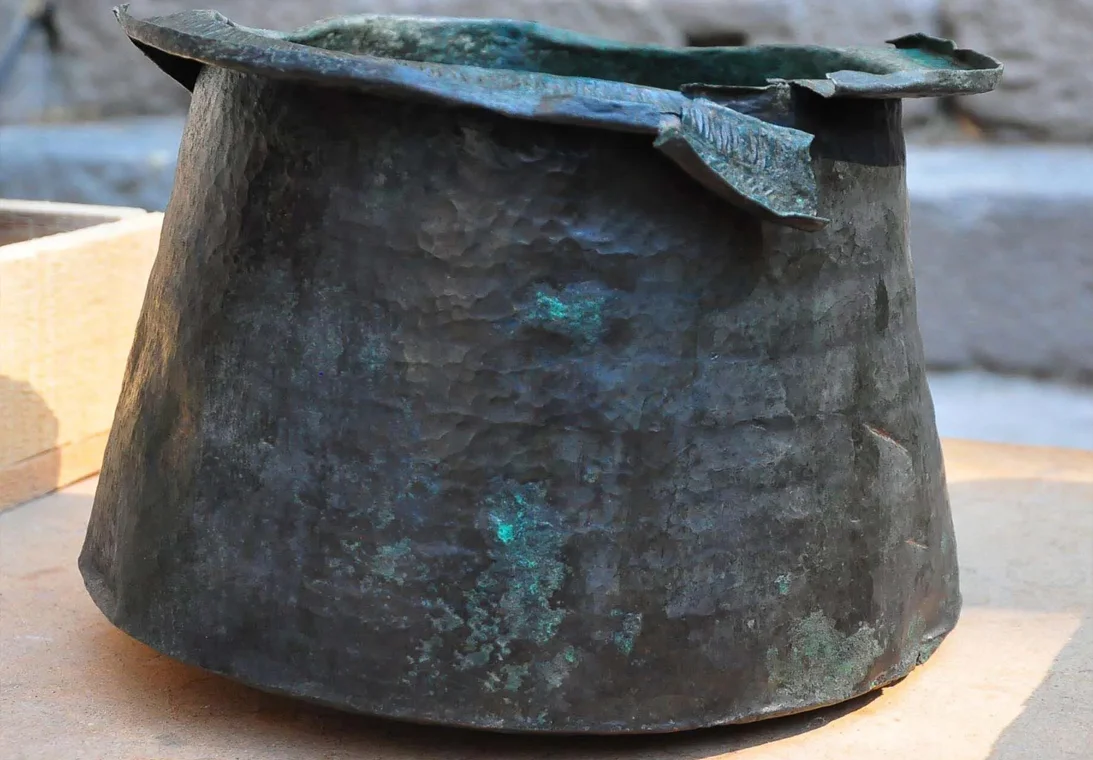Archaeologists have discovered a 1,400-year-old bronze cauldron during excavations in the ancient city of Pergamon, located northwest of the modern city of Bergama, Turkey.
Pergamon was a rich and powerful ancient Greek city during the Hellenistic period, emerging as the capital of the Kingdom of Pergamon under the Attalid dynasty.
During the 1st century BC, the Romans deprived Pergamon of its status as a free city, establishing the city as the seat of a conventus (regional assembly) in the province of Asia.
Archaeologists have recently been excavating the “Mosaic House”, part of a large residential complex known for its richly decorated floors and ornate architectural features.
According to experts, the cauldron was crafted using a bronze hammering technique, a practice which is nearly identical to those still practiced in regions like Diyarbakır and Şanlıurfa.
“Bronze was a valuable material in antiquity, unlike the more commonly used ceramics,” said Excavation Director Prof. Dr. Sezgin. “This artefact, found in its original place and condition, provides a direct snapshot of life at the time.”
The restored cauldron is now ready for public display and will soon be exhibited at the Bergama Museum.
The excavation is part of the “Heritage to the Future” project, an initiative headed by the Turkish Ministry of Culture and Tourism.
Header Image Credit : DHA
Sources : DHA





